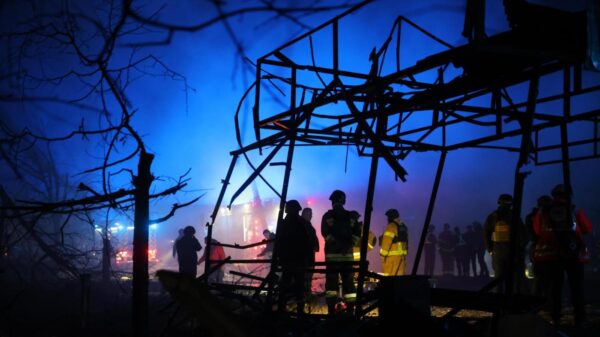Carroll County Public Schools (CCPS) has released a proposed immigration enforcement policy that aims to clarify how school staff should interact with U.S. Immigration and Customs Enforcement (ICE) agents. This measure, which is subject to public feedback, will be voted on during the Board of Education meeting scheduled for December 10, 2023.
The proposed policy explicitly states that under no circumstances should staff interfere with ICE operations. This includes not attempting to make ICE agents leave public spaces, conceal individuals from ICE, or assist anyone in evading immigration enforcement. During a recent Board meeting, only one member, student representative Jasmina Musaeva, voiced concerns, expressing that ICE officers should not be present in schools checking immigration statuses. Musaeva emphasized that parents trust schools to protect their children, regardless of their citizenship status.
Jon O’Neal, assistant superintendent of operations for CCPS, noted that the school system has never encountered a situation where ICE was present in a Carroll County public school. O’Neal explained that although the new policy specifically addresses ICE, it is aligned with existing procedures for police interactions. The intent behind the proposed policy is to minimize disruption within the school environment.
The impetus for this policy stems from legislation passed by the Maryland General Assembly earlier this year, which mandates that every Board of Education in the state develop an ICE policy. In a memo dated January 23, 2023, Carey Wright, State Superintendent of Schools, provided guidelines for handling immigration enforcement in schools. These guidelines highlight that federal and state laws protect educational records and personal information, generally requiring written consent from parents or guardians before any information is released.
According to the guidelines, schools are advised to consult with their superintendents and legal counsel before responding to requests from federal immigration authorities. The recommendations also encourage school districts to implement training on immigration issues for staff members. O’Neal confirmed that CCPS staff collaborated with legal counsel to ensure the policy aligns with these guidelines.
The proposed policy defines “public” and “nonpublic” spaces within CCPS facilities. It states that all areas in CCPS buildings are classified as “nonpublic,” with exceptions for the Central Office reception area, the Board of Education meeting room, and school reception areas. Law enforcement agents must have proper authorization to enter nonpublic spaces, and they can only enforce immigration law in private areas if they possess a judicial warrant or if exigent circumstances arise, such as emergencies threatening public safety.
Examples of such exigent circumstances include risks of death or violence, potential harm to a person or property, or “hot pursuit” of a dangerous suspect. Should ICE arrive at a CCPS building, administrators are instructed to contact the Chief of School Security, who will serve as the liaison between ICE and the school system. Officials are advised to request that ICE agents remain in public areas, and if immediate access to private spaces is sought, staff are to document the interaction and defer to the Chief of School Security.
Notably, the policy prohibits CCPS staff from interfering with ICE operations or attempting to remove agents from public spaces. The Chief of School Security can only grant access to private areas if ICE presents a valid judicial warrant or asserts that exigent circumstances are in effect. If ICE enters private spaces without a warrant, staff are to observe and document the actions without interference.
In the event that a student is arrested by ICE, a school official must be present, and parents will be notified. The policy reinforces that student records are protected under federal law, stating, “CCPS does not release student education records or personally identifiable information without a valid court order or subpoena, in compliance with the Family Educational Rights and Privacy Act (FERPA).”
The proposed policy comes in the wake of a January announcement by the U.S. Department of Homeland Security, which enabled ICE to operate within schools. Community members are encouraged to provide feedback on the proposed policy through online submissions or by mailing comments to the Superintendent’s Office at 125 N. Court St., Westminster. Residents may also register to speak during public participation at the upcoming Board of Education meeting.
The discussion surrounding this proposed policy highlights the complex intersection of education, immigration, and community trust, as stakeholders navigate the implications of federal enforcement within school environments.



































































